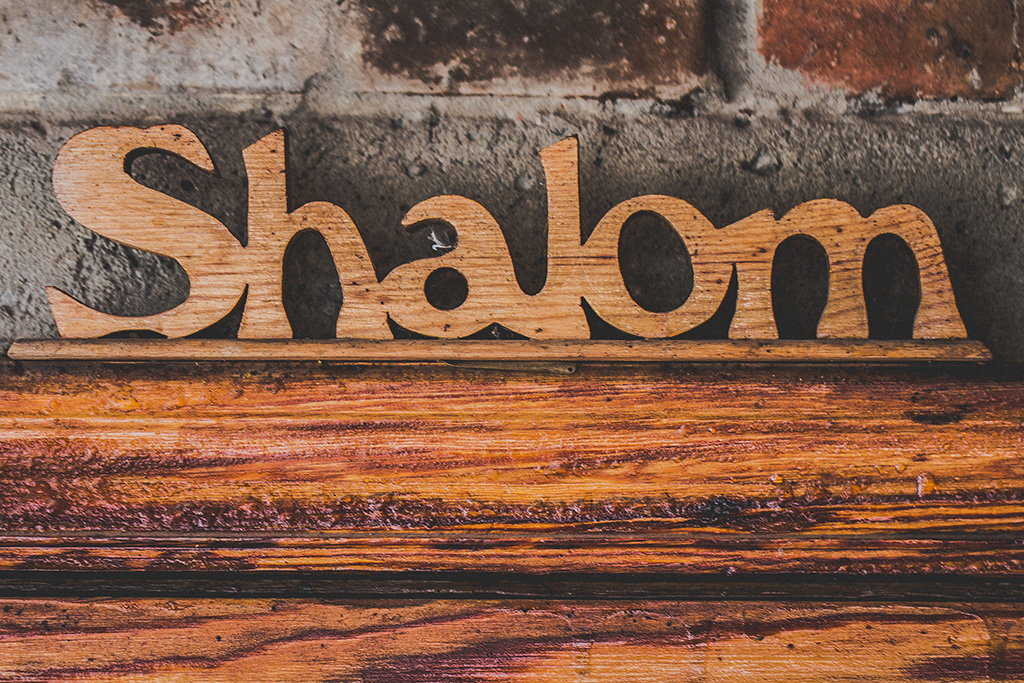
Shalom, Eleanor
Shalom, Zakaria
Shalom, Lena
Shalom, Oliver . . .
That’s how my daughter’s first-grade teacher began class on Wednesday morning this past week. She went through all twenty-fix students, each one reciprocating, “Shalom.” They had been greeting one another in different languages for weeks. This personal address, however, stopped me in my tracks. The timing was exquisite given the depth of meaning of shalom. Shalom is an Old Testament concept, a Hebrew word often translated as “peace” in English. Yet shalom is far more than personal serenity. It is a state of communal wellbeing; a social existence marked by wholeness, health, and security; a cooperative network where the needs of all matter to all. It conveys a beautiful and stirring vision of harmony within creation—the earth and all its inhabitants.
It is hard to imagine, as we head into the waning days of 2020, anything more necessary than shalom. Mutual regard, upholding the dignity of all, humble dependence upon the land, charity and generosity in word and deed, compassion and care for the most vulnerable, provision for the sick and presence with the lonely: these are the tangible relational qualities of shalom.
In shalom, each person is beloved. Each one’s cries are heard and received with compassion—the antithesis of disdain. The community of shalom demonstrates the worth of each member through concrete acts of solidarity, justice, and care. Where there is shalom, there is satisfaction, contentment, and trust in both the provision of God and the sturdiness of neighborly love. Joy and delight well up in our hearts and overflow to others in shalom.
Ultimately, shalom is a gift of God; we cannot bring it completion. That much is evident daily. We can catch glimpses of it, however. Taking time to notice signs of shalom in our neighborhoods and families, country and world can elicit gratitude and hope. It can strengthen our resolve to pray for shalom and wait for its fullness. It can compel us to practice shalom and to make amends when we contradict it. This, too, is an expression of wholeness and contributes to communal wellbeing.
Meditating on shalom as portrayed in the Bible can help us to glimpse its presence (as well as its absence) in our lives and in the lives of others. Personally, I find Isaiah 54 inspiring. It is a moving compilation of images depicting God’s lovingkindness and God’s promises to uphold the covenant of peace (shalom) with God’s suffering people.
Not only is shalom a divine gift but also it is a blessing bestowed upon us by God which we, in turn, can share with one another. The great priestly blessing of Deuteronomy 6:24-26, pronounced by Jewish rabbis and adopted by many Christian congregations as a benediction, reads in English:
May the Lord bless you and keep you;
May the Lord’s face shine upon you and be gracious to you;
May the Lord lift up his countenance upon you and give you peace [shalom].
Each time this blessing is spoken over us, we stand before God and wait for God to grant us, personally and collectively, the fullness of shalom. We also remember that shalom is for all, especially those whose existence stands in the starkest contrast to it. Perhaps we might ask ourselves this week: To whom might I extend this blessing? What people and groups desperately need safety, security, health, or prosperity? Who comes to mind as I ponder this gift, and how might I hold them in God’s love and light?
Shalom is a blessing for all times, and one we all need in this particular time of waiting and longing. So, as we meditate and pray and wait and work, may we also find ways to greet one another like my daughter’s first-grade class:
Shalom, my friend
Shalom, my child
Shalom, my community of faith
Shalom, my neighbor
Shalom, my stranger
Shalom, my enemy
Shalom, ravished land
Shalom, all.
Upcoming Virtual Workshop
We invite you to join us online this Thursday, November 12 at 6:30pm for a virtual workshop “Tending to Ambiguous Losses in Uncertain Times.” Have you experienced an incomplete or uncertain loss? Maybe a loved one is physically absent but psychologically present such as through adoption or divorce or a loved one is psychologically absent but physically present with dementia or Alzheimer’s. In this workshop, we’ll discuss the nature of ambiguous loss and ways to deepen our resilience in these uncertain times. For more information and to register, click here.
*Theresa F. Latini, Ph.D. is the Executive Director of Mount Olivet Conference & Retreat Center and an ordained minister in the Presbyterian Church (USA)
Thank you so much for this blessing of sholom during such a stressful time. I will be remembering and meditating on your words in the week ahead and making the word sholom part of my own daily devotions.
So glad to hear that this was a meaningful post. I hope your meditation on shalom brings you the same this week, Diane! Take care.